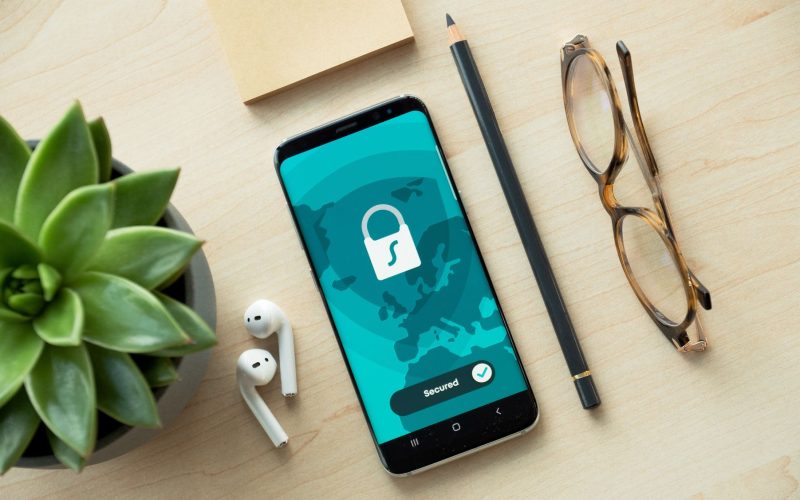We all know that our online privacy is important, but do we know how to protect it? With data breaches, cyber-attacks, and online scams becoming more common each day, it is more important than ever to ensure that your information stays secure. Here are five tips to help you stay safe and private when browsing the internet.
1. Use a Password Manager
A password manager is a great way to keep track of all of your passwords without having to remember them yourself. You can also use them to store other sensitive information like credit card numbers and answers to security questions. Password managers generate secure passwords for you and store them in an encrypted database, so you don’t have to worry about them being stolen or compromised.
Protecting your data and information online requires vigilance, as cybercriminals are constantly evolving their tactics to breach security systems. The most effective protection you can use is a password manager. It helps you keep track of numerous passwords necessary for all the different platforms and services we use today. Not only will it make it much easier to find and use secure passwords, but it will also alert you if your account is ever compromised or any of your credentials are leaked across the web, giving you an extra layer of protection against identity theft. A password manager helps organize all your usernames, passwords, and other information in one place, offering a critical level of control over personal online data that will keep your privacy safe.
2. Avoid Using Public Wi-Fi Networks
Public Wi-Fi networks are convenient, but they aren’t always safe. Unsecured public networks put your data at risk because anyone who has access can intercept and steal it. That means if you’re using a public network, someone could be watching what websites you visit, stealing your passwords, or even using your connection for illegal activities. If you need to use public Wi-Fi, make sure the connection is secured with a strong password before connecting.
In this increasingly digital age, protecting your privacy online is of utmost importance. Although public Wi-Fi networks might seem like a convenient and cost-effective way to stay connected, the truth is that they come with several security risks. Connecting via such networks could potentially expose your browsing activity to cybercriminals, leaving sensitive information at risk of being stolen or misused. Avoiding the use of public Wi-Fi networks can help minimize the potential for data breaches, as well as give you peace of mind knowing that all your data is securely transmitted over a private network. On top of that, virtual private networks (VPNs) can add another layer of protection when connecting to public Wi-Fi connections by encrypting your network traffic and providing entry points to the internet without compromising your personal data. Being mindful of your online safety should become a routine habit in order to reap the full benefits associated with avoiding using unprotected public Wi-Fi networks.
3. Install Anti-Virus Software
Installing anti-virus software is one of the most effective ways to protect yourself from malicious software, viruses, and hackers when browsing the internet. It scans your computer for threats and helps block dangerous websites before they can infect your system. Make sure you keep your anti-virus software up-to-date so that it can detect the latest threats as soon as they become available.
As the prevalence of private information being stored virtually increases, so does the risk of its potential exploitation. Anti-Virus software provides a comfortable security level for users who wish to maintain their privacy online. These sensitive programs work to identify and challenge malicious threats such as ransomware and phishing scams, going beyond detection to protect confidential data from being shared without permission. Furthermore, many offer features such as embedded firewalls or activity trackers, which assist in spotting any suspicious trends that could potentially compromise your information. With these protections in place, you can remain confident that your private data is secure while utilizing the convenience and benefits of the Internet.
4. Use Encryption Technology
Encryption technology scrambles data into unreadable code so only those with the correct decryption key can access it. This makes it much harder for hackers or cybercriminals to steal your data or use it for their own purposes without your permission. You should look for end-to-end encryption services so that no one else can read the messages sent between devices—even if they get intercepted in transit!
Encryption technology is a valuable asset to help secure your online privacy. This technology helps protect our communication and personal data as it travels across the internet by scrambling its contents, making it unfeasible for hackers to decode or use for malicious purposes. With encryption enabled, you can rest assured that your data is well-protected and access is limited to those you intentionally share with. Encryption also provides an additional layer of security when accessing banking websites to make sure your financial information is not viewed by anyone else. All these benefits amount to a peace of mind knowing that your private information remains exactly that – private!
5. Be Careful About What You Post Online
You should always be aware of what you post online because anything you put out there could potentially be seen by anyone with an internet connection—including potential employers or future business partners! Don’t post anything on social media that could damage your reputation or give away too much personal information, such as birthdates or addresses; stick with general statements about hobbies and interests instead!
Protecting yourself online doesn’t have to be complicated; following these basic steps can go a long way towards keeping your data secure and ensuring that your privacy remains intact while browsing the internet safely and securely! Remember, never trust any website completely—be vigilant and take the necessary precautions when entering sensitive information into any website! Taking these measures will help keep you safe from cybercrime while still allowing you to enjoy all of the benefits that come with being online!

